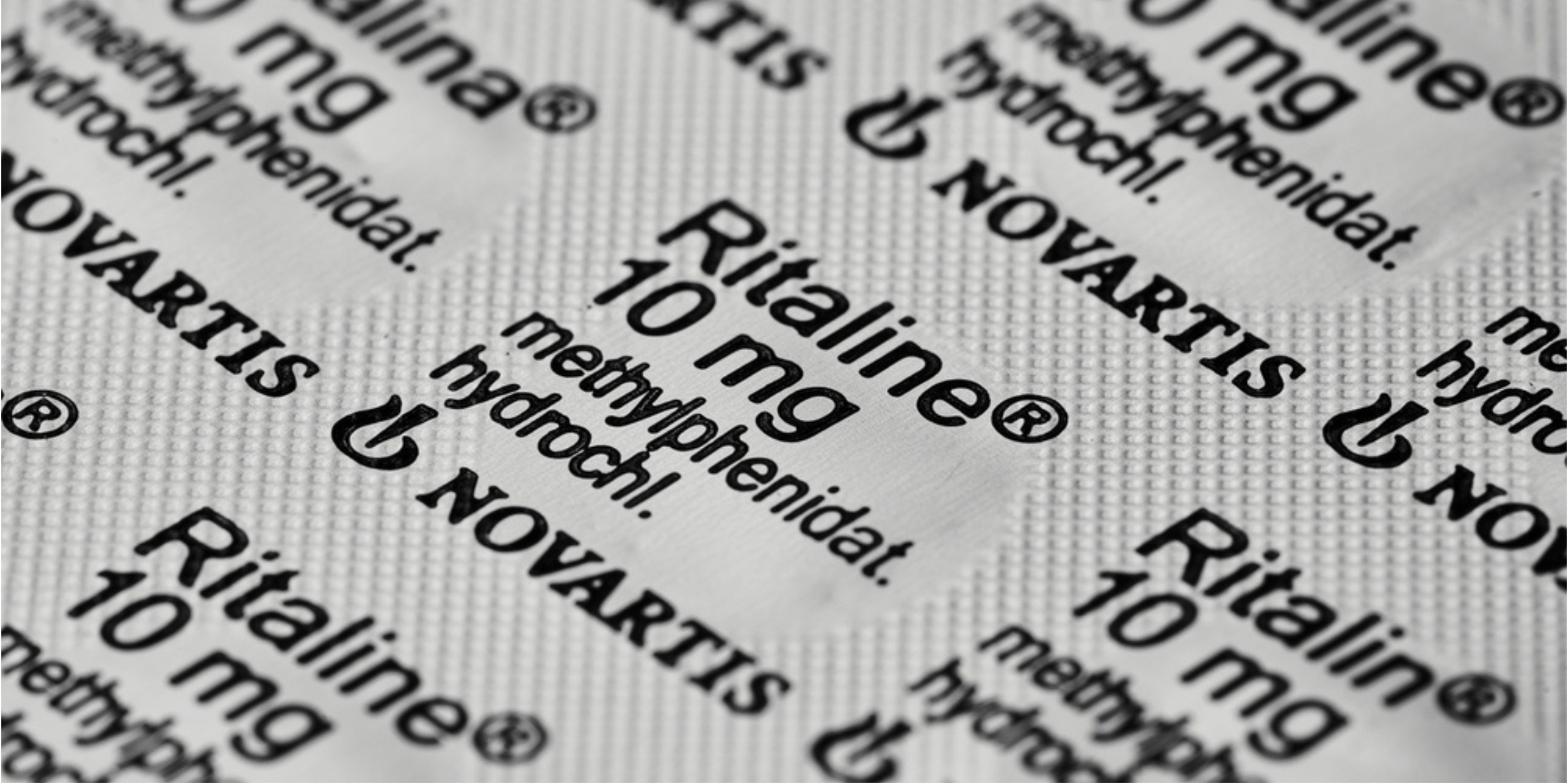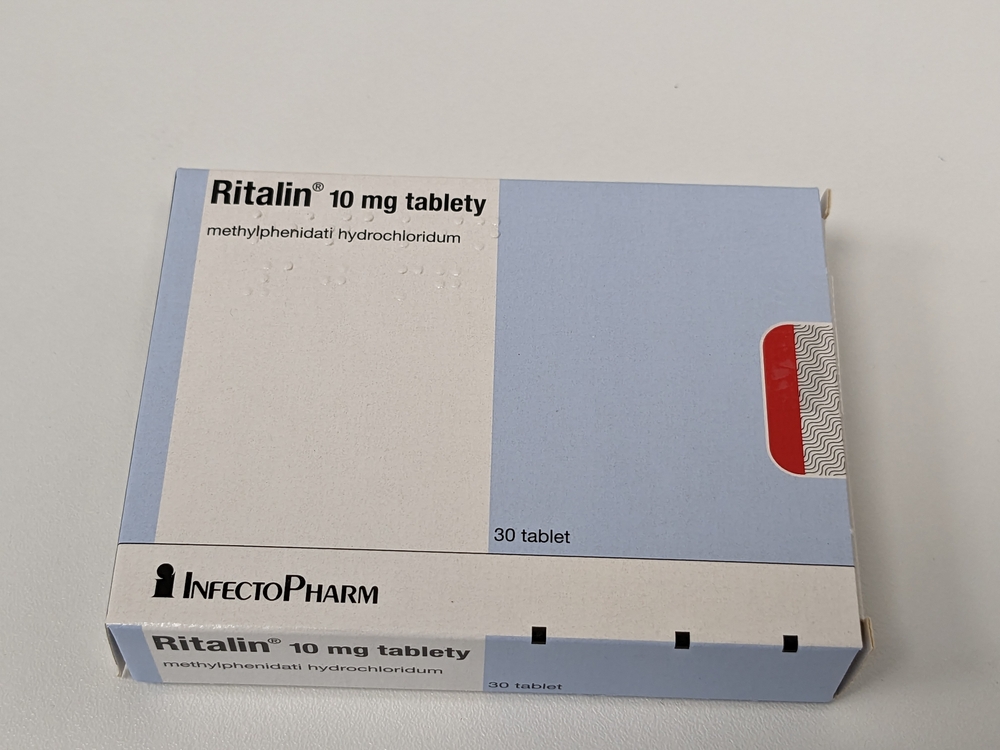Last Updated:
July 21st, 2025
Ritalin Addiction | Symptoms, Effects and Causes
Ritalin has the power to change lives for the better by enhancing focus and reducing impulsivity for those with ADHD. It has been one of the most prescribed stimulant medications for years, but its benefits have now shown to come with serious potential pitfalls. Misuse or unsupervised Ritalin use, in particular, can quickly turn a beneficial medication into a dangerous addiction. Knowing what signs to look out for, the reasons behind Ritalin addiction and its possible consequences can help you avoid its grip and keep your life on track.

What is Ritalin?
Ritalin, a common formulation of methylphenidate, is one of the world’s most prescribed ADHD and narcolepsy medications. Methylphenidate was first synthesised in 1944 and has been used for various conditions.
By increasing the levels of key brain chemicals like norepinephrine and dopamine, Ritalin helps tackle the core symptoms of ADHD and narcolepsy. For ADHD individuals, Ritalin brings a sense of calm, enhances concentration and helps them manage impulses more effectively. For narcolepsy patients, Ritalin’s stimulative effects keep them alert and awake throughout the day, which can completely transform their lives.
However, these potent Ritalin effects can, unfortunately, also lead to its abuse. People might take it to enhance academic or professional performance or for its stimulant effects, similar to how some abuse cocaine or meth. This misuse can lead to severe Ritalin side effects, among them:
- Extreme restlessness
- Stomach cramps
- Complete loss of appetite
- Sleeplessness
- Anxiousness
- Chronic tiredness
- Mood swings
- Ritalin addiction
Ritalin UK rules state that it can be only prescribed for children over six years of age and never for adults or children under six.
What is Ritalin addiction?
When the use of Ritalin transitions into addiction, you will find yourself compelled to take it even at the cost of your well-being. At the outset, Ritalin may initially serve as an effective tool for managing the rigours of demanding schedules or the challenges of ADHD or narcolepsy. Yet, this early phase of perceived control can quickly transition to a deeper need.
As time goes on, you might notice a shift from using Ritalin because you need it to crave Ritalin compulsively. As your brain becomes accustomed to Ritalin’s presence, it becomes less capable of functioning independently. If you decide to cut back or quit, your brain struggles to adapt to the absence of its chemical crutch. This struggle produces debilitating withdrawal symptoms like overwhelming anxiety, persistent sleeplessness and severe nausea.
On top of the physical need, Ritalin addiction can subtly convince you that the drug is essential for your life and it becomes a priority over everything else. This psychological dependence penetrates every facet of life, from deteriorating health and fractured relationships to a skewed sense of reality, leaving you feeling lost and disconnected from your everyday life.
How to spot the warning signs of Ritalin addiction
Even legitimate use of Ritalin must be carefully monitored to guard against stimulant addiction. Keep an eye out for these Ritalin addiction signs and symptoms:
- Your regular Ritalin dosage doesn’t seem to work anymore.
- You’re increasingly worried about obtaining more Ritalin.
- Your relationship with loved ones is strained due to Ritalin use.
- Withdrawal symptoms emerge strongly when you cut back or quit.
- You’re sacrificing personal and professional commitments to use Ritalin
- You’re engaging in deceitful behaviour to secure more Ritalin.
- Despite knowing the negative impacts, you continue your Ritalin use.

If these signs of Ritalin addiction are causing alarm bells to ring, don’t panic. Spotting the signs early means you can get help for Ritalin addiction before it’s too late.
What causes Ritalin addiction?
While Ritalin effects themselves can be both habit-forming and appealing, it is the deeper, more personal factors that often predispose individuals to addiction. These factors can range from:
The mental and physical dangers of Ritalin addiction
Ritalin addiction and abuse can ruin both your physical and mental health and can even cause death. Here are some dangers you should be aware of if you are using Ritalin:
How to help someone with a Ritalin addiction
Recovery from Ritalin addiction begins with a controlled and carefully monitored prescription drug detox. During this critical time, your medical team strategically lowers the amount of Ritalin in your system, allowing your body to adapt at a manageable pace and reducing the severity of withdrawal symptoms. To aid this process, you might receive additional medical support to alleviate discomfort.
After you have detoxed from Ritalin, understanding the underlying causes of your addiction is essential, and it is tackled head-on in rehab. The UK offers a spectrum of prescription drug rehab options, from private retreats to NHS-funded centres. Inpatient settings are often recommended because they provide an immersive recovery experience, shielding you from the triggers of daily life and supporting a deeper focus on healing and self-discovery.
Where to get help for Ritalin addiction
Confronting an addiction to stimulants can be daunting, but you don’t have to face it alone. With Addiction Helper, you can access a number of rehab centres across the UK, offering comprehensive programmes to help you recover. Contact us to explore your treatment options and embark on a journey towards a sober, healthy life.
Our compassionate team are ready and available to take your call, and guide you towards lasting the lasting addiction recovery you deserve.
Frequently Asked Questions
(Click here to see works cited)
- UK-Rehab. “Stimulants – Ritalin Addiction Information | UK Rehab.” UK-Rehab, https://www.uk-rehab.com/stimulant-addiction/ritalin/. Accessed 30 January 2025.
- UK Addiction Treatment Centres. “Ritalin addiction | Ritalin abuse signs and symptoms | UKAT.” UK Addiction Treatment Centres, 3 January 2024, https://www.ukat.co.uk/addiction/drug/prescription/stimulants/ritalin/. Accessed 30 January 2025.
- Condron, Patrick. “Ritalin Abuse Signs, Symptoms, and Addiction Treatment.” DrugAbuse.com, 1 June 2023, https://drugabuse.com/stimulants/ritalin/. Accessed 30 January 2025.
- Morton, W Alexander, and Gwendolyn G. Stockton. “Methylphenidate Abuse and Psychiatric. Accessed 30 January 2025.
- NHS. “Methylphenidate: a medicine used to treat attention deficit hyperactivity disorder (ADHD).” NHS, https://www.nhs.uk/medicines/methylphenidate-adults/. Accessed 30 January 2025.
- Side Effects.” Primary care companion to the Journal of clinical psychiatry vol. 2,5 (2000): 159-164. doi:10.4088/pcc.v02n0502. Accessed 30 January 2025.

